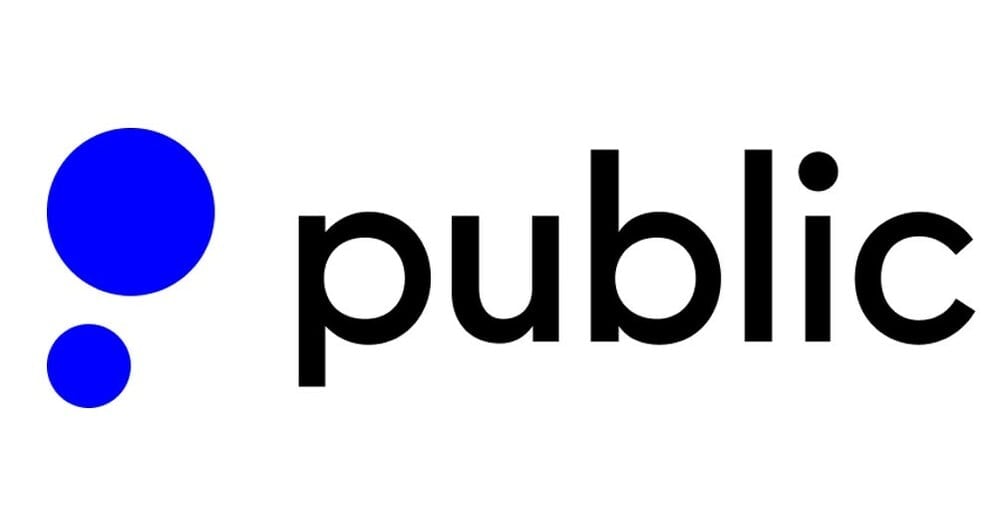6 Upcoming IPOs to Watch
Considering investing in an initial public offering? Learn about upcoming IPOs for 2024.

Many, or all, of the products featured on this page are from our advertising partners who compensate us when you take certain actions on our website or click to take an action on their website. However, this does not influence our evaluations. Our opinions are our own. Here is a list of our partners and here's how we make money.
The investing information provided on this page is for educational purposes only. NerdWallet, Inc. does not offer advisory or brokerage services, nor does it recommend or advise investors to buy or sell particular stocks, securities or other investments.
After a busy couple of years, the IPO market has been mostly lethargic since 2021. While some companies have braved the icy waters and debuted in a tumultuous market, other big names continue to wait on the sidelines for their much-anticipated IPOs. Many heavy hitters and startup companies are expected to IPO next year — the below list is just a small slice of that market.
Financial advisors often suggest investing for long-term growth. So, if you “miss out” on an IPO listed below, don’t fret. If it’s a solid business and you’ve got a long-term growth mindset, you don’t have to be first in line to buy. (Need more context? Learn more about IPOs and how they work.)
6 Upcoming IPOs
1. Chime
Chime offers banking services but isn't itself a bank. Instead, the company partners with two banks to offer checking and savings accounts with no overdraft or monthly fees. The company reportedly has a $25 billion valuation after closing a round of funding in 2021.
In January 2022, Reuters reported that Chime had lined up Goldman Sachs to help it prepare to go public, a report that Chime disputed. Subsequent reports in other news outlets said the company decided to delay its IPO amid market volatility. Since 2022, the company hasn’t given any clues as to when it might restart preparations for its IPO, though it likely won’t until market conditions start to favor financial services again.
2. DataBricks
DataBricks may not be a household name, but the company has created software that’s used by big names, like Microsoft (also an investor), HP, Comcast and Regeneron Pharmaceuticals, just to name a few. DataBricks claims to “make big data simple” by streamlining the tools used to analyze that data.
News broke of the company’s potential IPO in October 2020, when reports showed the company was in the early stages of discussing going public. Though many expected an IPO in 2022, the company delayed preparations due to unfavorable market conditions. In September 2023, T. Rowe Price valued the company at $43 billion, mostly due to its strategic partnership with arguably the hottest name in AI — Nvidia. The $43 billion valuation makes DataBricks the world’s eighth most valuable private company, according to Crunchbase data. An IPO date has yet to be announced, but it won’t be hard to miss when it does.
» Ready to get started? See our
3. Discord
Discord was founded to help people communicate while playing video games. But the company has rapidly grown into much more, with over 150 million active monthly users connecting virtually via voice, video and text chat. The platform allows users to form invitation-only groups where they can listen to music together, screen share, study or discuss topics of interest.
In 2022, the company raised over $900 million in 15 funding rounds, according to Crunchbase. It is widely expected to IPO in the near term, though it hasn’t made any plans public.
NerdWallet rating 4.8 /5 | NerdWallet rating 4.6 /5 | NerdWallet rating 4.6 /5 |
Fees $0 per online equity trade | Fees $0 | Fees 0% - 4% varies by type of transaction; other fees may apply |
Account minimum $0 | Account minimum $0 | Account minimum $0 |
Promotion None no promotion available at this time | Promotion Earn up to $10,000 when you transfer your investment portfolio to Public. | Promotion Get $200 in crypto when you sign up. Terms Apply. |
4. Fanatics
Fanatics sells sports merchandise and has exclusive licensing deals with major sports leagues — such as the NFL, MLB, NBA and NHL — along with colleges and universities. The company has seen rapid growth since its founding in 2011 and was valued at $31 billion near the end of 2022 after receiving $700 million in investment funding.
In June 2023, the company held its second investor day, during which Tom Brady, an investor in the company, made a surprise appearance. Though the company hasn’t announced specific plans for an IPO, it’s expected to make some moves in the near term.
5. Reddit
The powerful online forum confidentially filed its Form S-1 with the SEC in December 2021, making its intention to go public official.
The press release announcing the filing disclosed little information and didn't reveal how many shares the company plans to sell or an expected valuation. Reddit was last valued at more than $10 billion during a funding round in 2021.
Since then, the company has not made any moves toward its market debut. Though it reportedly wanted to IPO in the middle half of 2023, it has since gone quiet. In an interview with The New York Times, published in June 2023, CEO Steve Huffman claimed that Reddit had moved further away from an IPO than in the previous year. Even so, many investors are still anticipating the company to IPO at some point in the near term.
» Learn more about the Reddit IPO
6. Stripe
Online payments giant Stripe has been one of the most-anticipated IPOs since posting tremendous growth during the pandemic. Companies such as Instacart, Shopify, Google, Amazon and Lyft use Stripe's software to process payments, and the company says 90% of U.S. adults have made a purchase from a business that uses Stripe.
Stripe's most recent round of funding in 2021 raised $600 million, putting the company at a $95 billion valuation. Since then, the company has cut its internal valuation twice, from $95 billion to $63 billion.
In January 2023, Stripe’s co-founders John and Patrick Collison told employees it would make an IPO decision within the next year, according to reporting by CNBC. In the same report, it was rumored that Stripe was in conversations with Goldman Sachs and JP Morgan to initiate a direct listing or private market transaction.
Recent IPOs: How did they do?
Airbnb (ABNB)
As many had expected, Airbnb’s IPO made headlines on its first day of trading, Dec. 10, 2020. Shares were priced in the IPO at $68, but in its debut on the public market, Airbnb started trading at $146 — a 115% leap. The stock then briefly hit a high of $165 a few weeks later before closing out the year at almost $147.
Albertsons (ACI)
Albertsons was listed on the New York Stock Exchange on June 26, 2020, at an offering price of $16 per share, but finished its first day of trading down at $15.45 per share. This lackluster debut came after the company lowered its initial offering price of $18-$20 per share.
Arm Holdings (ADR)
Arm Holdings debuted on September 14, 2023 and shot some life into an IPO market that had grown sleepy since 2021. The U.K. chip designer’s shares were priced at $51, then strong-armed their way to $65.60 before closing at $63.59.
Asana (ASAN)
Asana went public through a direct listing and began trading Sept. 30, 2020, with shares priced at $27 — nearly 30% higher than the reference price of $21 set by the New York Stock Exchange. The stock rose even higher on its first day of trading, closing at $28.80 per share.
Beyond Meat, Inc. (BYND)
Talk about a first-day IPO pop: The share price of the plant-based meat company nearly tripled in its initial day of trading in May 2019, making it one of the best-performing IPOs for a company its size since 2000.
Birkenstock (BIRK)
It took just 250 years before the German sandal maker made its debut on the market, and it was mostly a flop. Before shares started trading on October 11, 2023, they were priced at $46, but the company closed out its first day at $40.20, a 12.61% drop. It was one of the worst IPOs of a company valued over $1 billion in over two years.
Bumble (BMBL)
Dating app Bumble began trading on the Nasdaq stock exchange on Feb. 10, 2021, and while its share price briefly hit a high above $80 in the days following the IPO, it has since followed a steady path downward.
Cava (CAVA)
The Mediterranean restaurant chain and owner of Zoë’s Kitchen had a hot market debut on June 15, 2023. After being valued at $22, Cava’s stock closed out at $43.53, making it one of the best IPOs of a company valued above $500 million in 2023.
Chewy (CHWY)
This e-tailer, focused solely on pet products, debuted on the New York Stock Exchange on June 14, 2019, at an offering price of $22 and closed the day at $34.99, a share price increase of 59%. The company is an independent subsidiary of PetSmart, Inc., which remains a majority stockholder after the IPO.
Coinbase (COIN)
Coinbase has emerged as a user-friendly way to trade cryptocurrencies, distilling what was once a collection of highly complicated tasks into a streamlined, in-app service. Users can buy cryptocurrencies in fiat money or trade their holdings in one cryptocurrency for another. Coinbase’s shares started trading on the Nasdaq on April 14, 2021, and closed below the opening price of $381 at $328.28. Since the IPO, COIN stock has traded mostly below its first few days on the market.
Compass (COMP)
Real estate brokerage Compass has made a name for itself by pairing traditional brokerage services with innovative technology, billing itself as the “first modern real estate platform.” But Compass offers more than just lofty marketing speak. In 2019, it acquired artificial intelligence and machine learning company Detectica to further enhance its AI-driven home recommendation services.
Compass went public April 1, 2021, and although its shares were priced at $18, the stock opened the day at $21.25. Unlike home prices, this stock has been falling below its IPO price ever since.
CrowdStrike Holdings (CRWD)
CrowdStrike is the company that investigated the hack of Democratic National Committee servers in 2016, as well as other high-profile breaches. True to its name, the company uses crowdsourcing systems (along with artificial intelligence and other means) to identify threats and zero in on perpetrators.
The company started trading June 12, 2019, at $34, and shares nearly doubled at one point during the first trading day, eventually closing up 71% from the offering price.
DoorDash (DASH)
When DoorDash priced its shares at $102, it meant the company expected to raise about $3.4 billion to achieve a valuation of about $39 billion. But when shares hit the New York Stock Exchange on Dec. 9, 2020, the stock opened at $182, rose throughout the day, and closed at $189.51. By the end of its first day on Wall Street, the market valued DoorDash at about $60.2 billion.
Fiverr International Ltd. (FVRR)
Rideshare services weren’t the only gig-economy companies that debuted in 2019. Fiverr’s online marketplace connects companies looking to hire out jobs (or “buyers,” in Fiverr lingo) with freelancers (“sellers”). The Tel Aviv, Israel-based company says it has facilitated more than 50 million transactions since its inception. Fiverr’s June 2019 IPO price was set at $21 per share; it eventually closed up 90%, at $39.90.
Instacart (CART)
The much-anticipated IPO of the grocery delivery app finally came on September 19, 2023. Though Instacart was once valued at $39 billion at the height of the pandemic, the company closed out its first full day of trading with a valuation just over $11 billion. Shares were valued at $30 a pop, then spiked 40% to open the day at $42, only to close at $33.70 later, a 12% gain.
Lyft (LYFT)
Rideshare company Lyft beat rival Uber to an IPO when it pulled onto the public market in March 2019 at a price of $72 a share. Since then the ride has been mostly downhill, with Lyft shares trading below the IPO price.
Nextracker (NXT)
Nextracker designs and sells solar trackers, which is the part of a solar panel that pivots and orients it toward the sun. On February 9, 2023, Nextracker debuted on the market with an expected IPO price of $24. The company’s stock opened at $30.31 and closed at $30.46 — a generous gain in an IPO market that had been cold since 2021.
Palantir (PLTR)
Palantir’s stock debuted on the NYSE the same day as Asana on Sept. 30, 2020, at $10 per share. This was 38% higher than its IPO price of $7.25.
Palantir’s services are wide-reaching and profound. The CIA used its technologies to help locate Osama bin Laden in 2011, it’s helping the U.S. Space Force track extraterrestrial objects and the Centers for Disease Control and Prevention is using it to monitor the spread of COVID-19. The company has won many more multimillion-dollar government contracts.
Peet’s Coffee and Tea (JDEP)
Despite the rocky markets, Peet’s Coffee and Tea parent company, JDE Peet’s, went public May 29, 2020, and raised 2.3 billion euros ($2.5 billion), making it the largest European IPO in 2020. Shares were priced at 31.50 euros and traded slightly higher in the days following.
Peloton (PTON)
Fitness company Peloton went public Sept. 26, 2019, at an IPO price of $29 and fell 11% during trading. The startup aims to make working out at home a “viable, exciting option,” with screen-equipped stationary bikes and treadmills that play a variety of live and on-demand group fitness classes.
Petco (WOOF)
Petco, which trades under the highly apropos ticker WOOF, began trading on the Nasdaq stock exchange Jan. 14, 2021, with an opening price of $26.25, rising to close the day at $29.40.
Robinhood (HOOD)
Robinhood went public July 29, 2021, at $38 per share under the ticker HOOD. The stock's price popped in the first few days, climbing over $55.
Rocket Companies, Inc. (RKT)
Rocket Companies, which includes Quicken Loans and Amrock, Inc., priced its shares at $18 and began trading on the NYSE on Aug. 6, 2020. By close on its first day of trading, the stock rose 19.5% to $21.51.
Slack (WORK)
Workplace collaboration service Slack also performed a direct-market listing on June 20, 2019. Slack’s reference price was $26, and the company opened at $38.50.
Snowflake (SNOW)
When cloud-based data storage and analytics firm Snowflake began trading Sept. 16, 2020, its shares more than doubled, making it the largest software IPO in history. Shares were priced at $120 the night before trading began, but opened at $245, hitting a high of $319 before ending the day at $253.93 per share.
Uber (UBER)
With a valuation of $82 billion, rideshare app Uber was one of the biggest tech IPOs ever and one of the most hotly anticipated offerings of 2019. But following the sputtering market debut of archrival Lyft, Uber went public in May 2019 at a lower-than-anticipated price of $45.
Vroom (VRM)
Online used-car marketplace Vroom submitted its initial plans to go public May 18, 2020, in hopes of raising $100 million. The filing came just six months after the company raised $254 million in December 2019, raising its valuation to unicorn status at $1.5 billion.
Vroom priced its shares at $22, and on its first day of trading, the stock more than doubled, closing at $47.90.
Warner Music Group (WMG)
As the third-largest record label in the world, Warner’s S-1 filing in early February 2020 commanded attention. Warner Music Group opened up to public trading June 3, 2020, at $27 per share, above the IPO price of $25. The stock climbed to $30.12 by the day’s close, an 11.6% increase.
Zoom (ZM)
Zoom, the cloud-based videoconferencing company, didn’t attract as much attention as other tech IPOs in the famed Class of 2019 when it went public in April of that year, despite being one of the few profitable companies on the roster. But investors quickly started taking Zoom’s calls: The stock popped 80% on its first day of trading.
ZoomInfo (ZI)
Not to be confused with videoconferencing software company Zoom (ZM), ZoomInfo pressed forward with its IPO on June 4, 2020, despite market uncertainty. The company, which offers market intelligence to sales and marketing teams, initially priced its shares between $16 and $18, but ultimately raised this price several times in the days leading up to its first day of trading, settling at $21. The stock opened at $40, nearly double the offering price.
» Ready to invest? See our list of the best brokers for stock trading
IPO day is just one day in the life a public company, and initial performance isn't an indication of long-term results. That’s the very nature of IPOs. Explore the calculator below to see how well you would have fared had you invested in the IPOs of these companies (or check out NerdWallet's investment calculator for a more general look at investment growth).
Financial advisors often suggest investing for long-term growth. So, if you “miss out” on an IPO listed below, don’t fret. If it’s a solid business and you’ve got a long-term growth mindset, you don’t have to be first in line to buy. (Need more context? Learn more about IPOs and how they work.)
Most of the time, you won't be able to buy a company's stock at its IPO price. Instead, you'll have to wait until it trades publicly on the stock market. But brokerages are increasingly offering IPO access. » View the best brokers for investing in IPOs.










